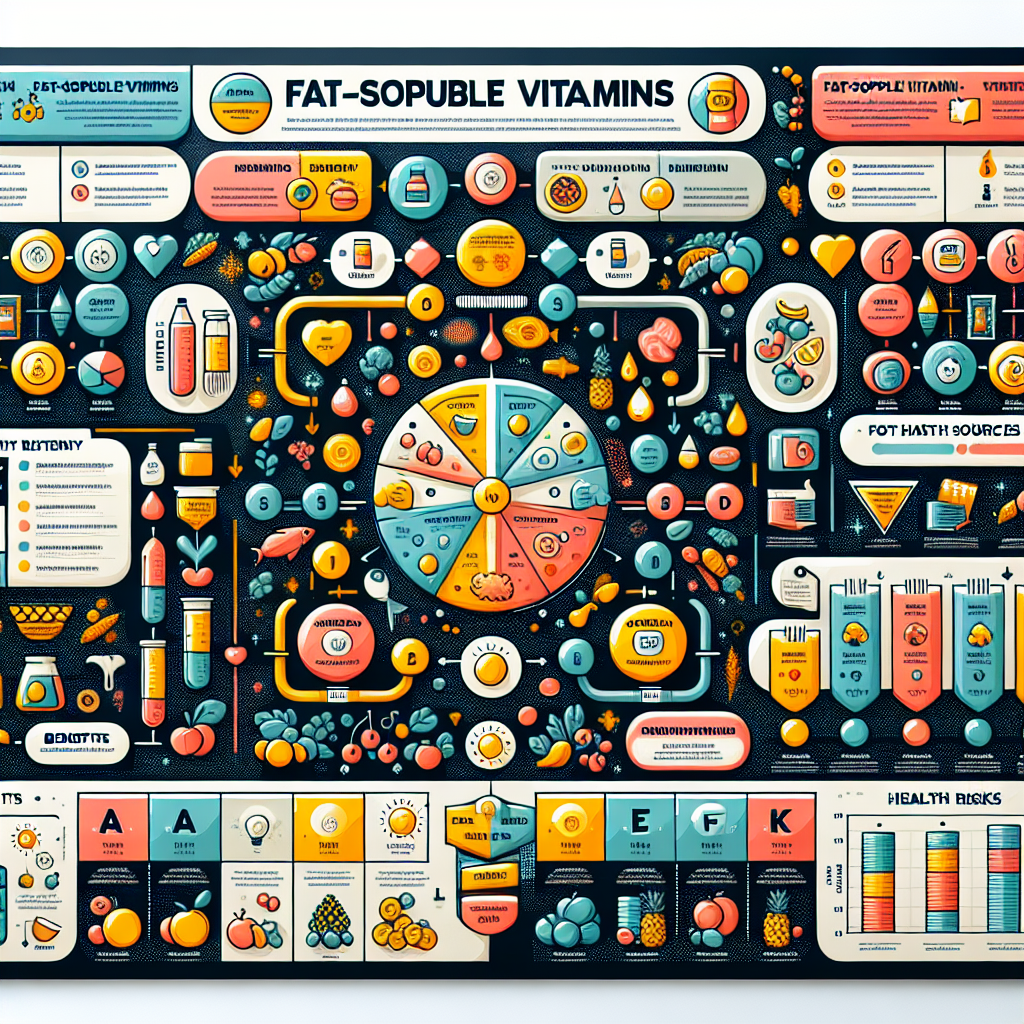Fat-soluble Vitamins: Spot the Odd One Out
In the world of nutrition, proper understanding of fat-soluble vitamins plays a crucial role in maintaining overall health. The article “Fat-soluble Vitamins: Spot the Odd One Out” leads the reader through a vast range of topics related to this theme, including the depiction of specific fat quantities, the impact of body fat percentages, and more niche aspects such as the healthiest fats for cooking. The discourse also clarifies misconceptions about the role of fats and vitamins in the body and addresses intriguing queries such as ‘what vitamin is neither fat nor water soluble’. By the end, readers will have a more nuanced comprehension of the relationship between body fat, vitamins, and general wellness.

Understanding Fat-Soluble Vitamins
What are Fat Soluble Vitamins?
Fat-soluble vitamins are a group of vitamins that are stored in the body’s fatty tissue and the liver. Unlike water-soluble vitamins, they are not significantly excreted in the urine and hence, cannot be consumed frequently. These vitamins are primarily absorbed with fats in the diet through the intestinal tract and are then transported throughout the body.
The Four Types of Fat-Soluble Vitamins
The four types of fat-soluble vitamins include vitamins A, D, E, and K. Each of these vitamins has unique functions and is vital for specific physiological processes ranging from vision to blood clotting.
How are Fat-Soluble Vitamins Absorbed?
Fat-soluble vitamins are absorbed in the same way as dietary fats. They first get dissolved in fat globules that form after the fat in our diet is broken down by bile salts. These vitamins then move into the walls of the small intestine, where they are absorbed into the lymphatic system and subsequently released into the bloodstream.
Differentiating Between Fat-soluble and Water-soluble Vitamins
Characteristics of Fat-soluble Vitamins
Fat-soluble vitamins are stored in the body for an extended time and used when needed. They are resistant to heat and can thus be maintained during food preparation. Also, they require dietary fat for absorption and transport.
Characteristics of Water-soluble Vitamins
Water-soluble vitamins dissolve in water and are not stored in the body. Instead, they are excreted through urine, sweat, and feces. Thus, a continuous supply of these vitamins is necessary. They are less likely to reach toxic levels, but they are also more susceptible to being destroyed by heat or air.
Major Differences and Similarities
The primary difference between both types of vitamins lies in their absorption, transportation, and storage. However, both types are crucial for maintaining overall health as they carry out various functions that maintain the body’s operations.
Identifying the Odd Fat-Soluble Vitamin Out
The Unique Characteristics of the Odd Vitamin Out
Each of the four fat-soluble vitamins has a unique structure and function in the body. One might stand out due to its particular characteristics or role that it plays in the metabolic processes.
Which Vitamin is the Odd One Out?
All fat-soluble vitamins are essential and necessary, but when examining how each interacts with the body, one could say that Vitamin D can be considered as the “odd one out.” Vitamin D differs from the other fat-soluble vitamins because the body can produce vitamin D with adequate exposure to sunlight.
Why This Vitamin is Different
Vitamin D is unique because it functions more like a hormone than a traditional vitamin. Once it’s produced in the skin or consumed in food, it’s converted in the liver and kidney to its active form, which regulates calcium and phosphate metabolism in the body.

Roles of Fat-Soluble Vitamins in Human Health
Role of Vitamin A
Vitamin A plays a crucial role in maintaining good vision, supporting the immune system, promoting cell growth, and contributing to heart and kidney function.
Role of Vitamin D
Vitamin D helps the body absorb calcium and phosphorus from food, contributing to healthy bones and teeth. It’s also involved in immune function and cell growth.
Role of Vitamin E
Vitamin E acts as an antioxidant, protecting cells from damage caused by free radicals. It also plays a role in immune function and DNA repair.
Role of Vitamin K
Vitamin K is involved in blood clotting, helping wounds heal properly. It also helps maintain strong bones and reduces inflammation.
What Happens with Excessive Fat-Soluble Vitamins?
The Health Risks of Excessive Fat-Soluble Vitamins
Excessive intake of fat-soluble vitamins can lead to hypervitaminosis or vitamin toxicity, which can be harmful to the body. Symptoms can include nausea, joint pain, and in some severe cases, irreversible organ damage.
Managing Overconsumption of these Vitamins
Overconsumption can be managed by adhering to the recommended daily allowances and avoiding high-dosage supplements without medical supervision.
Consequences of Lack of Fat-Soluble Vitamins
Health Risks of Insufficient Fat-Soluble Vitamins
Insufficient intake of these vitamins can result in different deficiency diseases or syndromes. For example, vitamin A deficiency can lead to night blindness, and severe Vitamin D deficiency can cause rickets in children or osteomalacia in adults.
Preventing Deficiency of these Vitamins
These deficiencies can be prevented through a balanced diet that includes a variety of foods, including fruits, vegetables, lean meats, dairy products, and fats that are low in saturated and trans fats.
Spotting the Misconceptions about Fat-Soluble Vitamins
Common Myths about Fat-Soluble Vitamins
Common myths about fat-soluble vitamins include the belief that the body does not require their regular intake since they are stored in body fat. Others believe that one cannot consume too much of these vitamins because excess is excreted, which is not the case.
Dispelling these Misconceptions
Fat-soluble vitamins are necessary not just for essential physiological functions, but also for achieving optimal health. Additionally, while it is true they are stored in the body, extreme amounts can lead to toxicity.
Role of Body Fat in Absorption of Fat-Soluble Vitamins
Understanding Body Fat
Body fat, also known as adipose tissue, can be classified into essential fat, which is necessary for normal physiological functioning, and storage fat, which is accumulated when the energy intake exceeds expenditure.
How Body Fat Affects Absorption of these Vitamins
Body fat plays a significant role in the absorption of fat-soluble vitamins. These vitamins depend on body fat for storage, and in cases where body fat is extremely low, deficiencies can occur due to impaired absorption and storage capacity. Conversely, extremely high body fat percentages may lead to increased storage and a risk of hypervitaminosis.
How to Adjust Dietary Intake for Optimal Absorption of Fat-Soluble Vitamins
Assessing Your Current Dietary Habits
Regular dietary assessment is crucial to ensure that your food choices provide an adequate amount of fat-soluble vitamins. This could involve keeping a food diary or consulting with a registered dietitian.
Tips for Optimizing Absorption of these Vitamins
To optimize absorption, include foods high in fat-soluble vitamins in your diet and pair them with healthy fats. Also, cooking methods play a vital role. Choosing methods such as baking, grilling, or steaming can keep these vitamins intact.
Exploring the Link Between Fat-Soluble Vitamins and Specific Populations
Fat-Soluble Vitamins and Athletes
Athletes may require a higher intake of some vitamins due to increased physical activity and energy expenditure. Moreover, Vitamin D is particularly crucial for athletes due to its role in bone health and muscle function.
Fat-Soluble Vitamins and the Elderly
The elderly population might be at a higher risk of deficiencies in fat-soluble vitamins due to factors like decreased food intake, reduced sunlight exposure, and impaired absorption and conversion of these vitamins.
Fat-Soluble Vitamins and People with Obesity
In individuals with obesity, the storage function of body fat can be compromised, affecting the distribution and bioavailability of fat-soluble vitamins. Certain fat-soluble vitamins, like vitamin D, are often found to be deficient in people with obesity.

